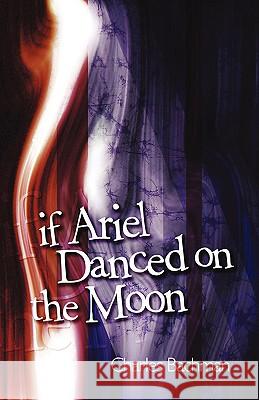If Ariel Danced on the Moon » książka
If Ariel Danced on the Moon
ISBN-13: 9781412090124 / Angielski / Miękka / 2006 / 176 str.
Charles Bachman's book of poems, "When Ariel Danced on the Moon," takes its title from its festive, celebratory last poem, in which an imagined dance by Shakespeare's Ariel --a metaphor for poetry and spiritual vision-- would bring to vibrant life what is effectively dead and dormant. Bachman's life experience, including nearly twenty years of studying Native American literatures and cultures, convinces him that poetic vision is akin to spiritual vision in having power to reveal and sometimes transform the natural world, including the landscape and those beings who live in it--our brothers and sisters the plants and animals, and ourselves. His many years as a professional opera and concert baritone have also given him what Roethke referred to as the "singer's ear," which helps explain the sheer power and beauty of sound and rhythm in these poems, masterfully integrated with tone and meaning.
Included in this evocation are the Earth Mother who can be beautiful landscape in "Letchworth Gorge, Earth Mother," as well as spiritual force aweing humans who abuse her, in "On Those Fields"; Iya the Sioux devourer; Okteondon the Iroquois epic hero; in "Glories of Morning" and "Winded Instruments," the shape, vibrant beauty, vulnerabilty, and mystical power of trees and flowers in their seasonal turnings; and the same qualities of animal beings including Great Turtle on which the earth resides, in "When Reptiles and Such, Speak."Included here are memories of rivers, lakes, woods, and mountains. Predators transform into prey. Rabbit and coyote trickster figures try ingeniously to cope with internal and external adversity. Spider-man, like dream/nightmare human figures in other poems, has astrange, disturbing psychology.
Utilizing forms ranging from the invented and organic, to the traditional Terza Rima and Villanelle, Bachman sees his own and others' qualities and idiosyncrasies in their variety of aspects: a painful fear of fragmented identity in poems such as "Company Reveille" and "Fragmentia Praecox"; humorous self-irony and affection in "Hoeing Soybeans" and "Florida Jack"; love in "Nancy's Hands"; outlandish mind- and word-play in "The Profoundest Poem Ever Written" and "E-ui"; biting satire in "The Manatee Missile," "The Artful Cashier Bagger," and "De--"; and metaphoric commentary on human nature in "Cricket Song" and "Mr. Burnside."Pervading this variety, however, is a highly individualistic, often quirky but always powerfully evocative poetic voice.











